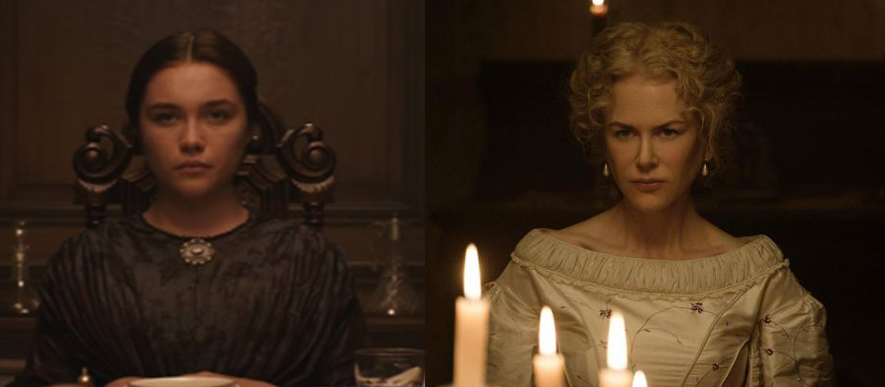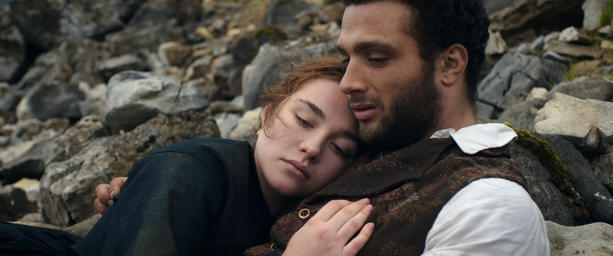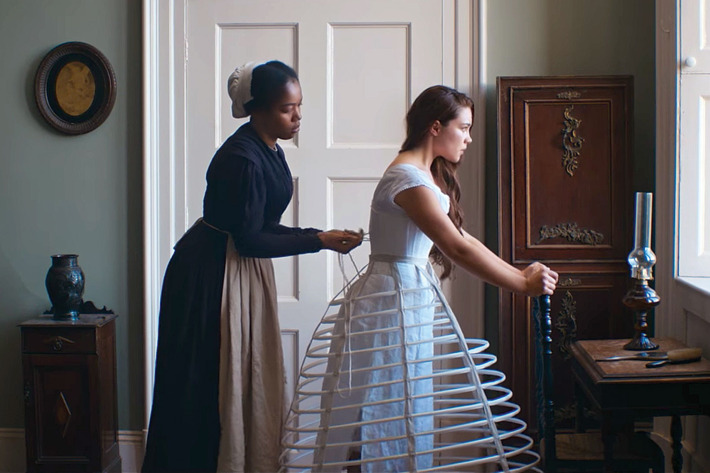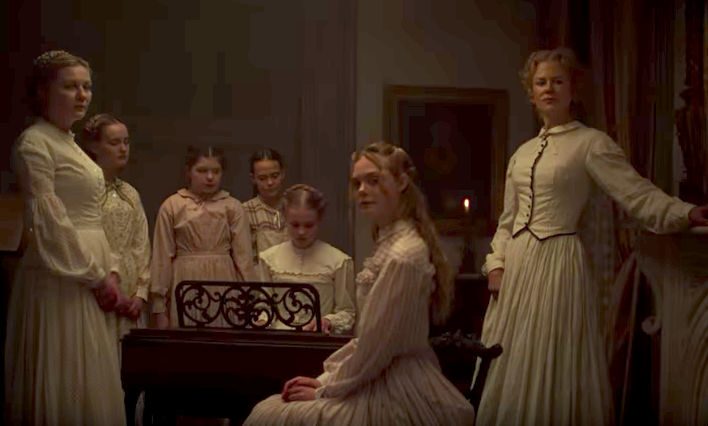by Lynn Lee
 Florence Pugh in Lady Macbeth / Nicole Kidman in The Beguiled
Florence Pugh in Lady Macbeth / Nicole Kidman in The Beguiled
In a summer filled with movies by or starring women of exceptional talent, The Beguiled and Lady Macbeth make an especially fascinating cinematic pairing. Both films center on mid-19th century women who appear trapped by their societies’ constricting gender norms. In both, the women are confined to an isolated, often claustrophobic space, yet nature is a constantly beckoning presence that at once shapes and reflects their desires. (Both even have plots that turn on poisonous wild mushrooms!) And in both, the women up-end the patriarchal structure of their circumscribed universe without liberating themselves. If anything, they reinforce that power structure even as they seize momentary control of it, leaving not a feeling of triumph but a somber queasiness.
For all these thematic similarities, the differences between the two films are even more striking...

While The Beguiled has all the gauzy, elliptical stylistic hallmarks of a Sofia Coppola joint, relative newbie director William Oldroyd brings a sharp, clean directness, both narratively and visually, to Lady Macbeth. Although we, like Colin Farrell’s McBurney, might think we have a good read on the various female characters in The Beguiled, they ultimately evade us, like fluttering moths, their motives translucent rather than transparent. By contrast, while Florence Pugh delivers a remarkably powerful performance as the mutinous, willful Katherine (her character’s name and disposition initially more reminiscent of Wuthering Heights than Shakespeare), Lady Macbeth heavily telegraphs each step she takes into the moral abyss and the impulses behind it. There’s a fatalistic beat to her increasingly horrific actions that does, at last, recall a certain Scottish play.
But the most interesting contrast, in many ways, is the two movies’ respective treatments of race. Whereas Coppola’s drawn fire for excising black characters from The Beguiled, notwithstanding its Civil War setting, several major characters in Lady Macbeth are black or mixed-race – most notably, Katherine’s maid, Anna (Naomi Ackie).

[SPOILERS] Other black or mixed race characters include the illegitimate young son of Katherine’s husband, as well as the boy’s grandmother (Golda Rosheuvel). For the record, it’s not clear that any of them were written to be of a specific race – though historically there were substantial black populations in that part of England at that time – and the casting director has insisted that she was not trying to make a political statement but was simply focused on finding the best actors for those roles. Still, given what the movie does with (and to) these characters, it’s hard not to read deeper implications into the casting.
Some of those implications are frankly disquieting, since the characters of color are also the ones who suffer the most brutal indignities in the film: the adorable little boy is cold-bloodedly murdered, while the long-suffering Anna is literally struck dumb by – and made the fall girl for – her mistress’s crimes. [/SPOILERS]
I doubt the filmmakers intended this to be a metaphor for the complicity of white feminism in suppressing other minorities; yet there’s no doubt the race of Katherine’s victims amplifies the injustice of their plight and further diminishes any sympathy we might have had for hers. Is this a shrewd move, or is it unnecessarily manipulative? Does it, like Katherine herself, reinforce an inequitable power dynamic rather than subvert it, and is that the point? Does the element of race muddy the class implications of the oppressed-turns-oppressor plot, and does that matter?

I don’t have answers to any of these questions. But I do think they throw into sharper relief Coppola’s decision to elide race altogether in The Beguiled. Yes, it’s likely she did it primarily because she wanted to stick to her usual comfort zone – the isolation of a particular species of (white) femininity under a glass dome. At the same time, I can’t help wondering whether she would only have traded one vein of criticism for another by retaining the black character(s). Short of being substantially rewritten, would they be as problematic in their presence as they are in their absence? It’s hard to say without her even having tried. But the contrasting example of Lady Macbeth suggests that including black characters without giving them real agency introduces its own set of pitfalls.
Readers, have you seen Lady Macbeth, and what do you think of its treatment of race? Does it compare favorably with The Beguiled in this respect – or any other?